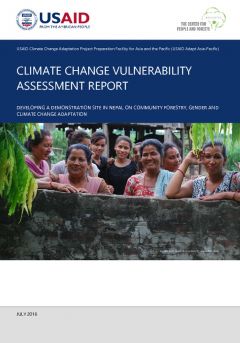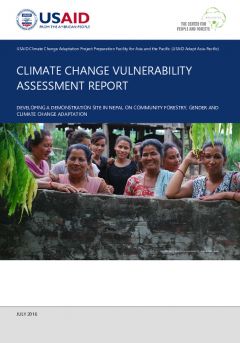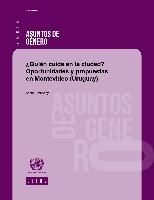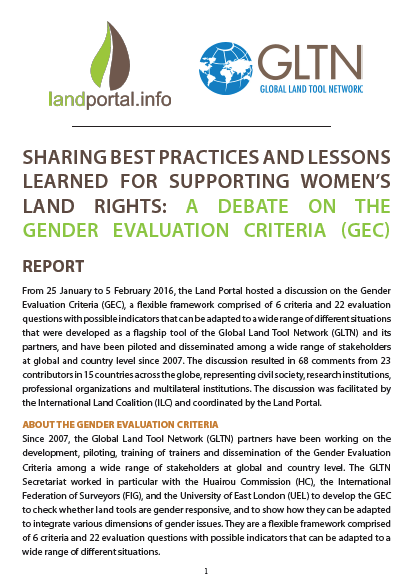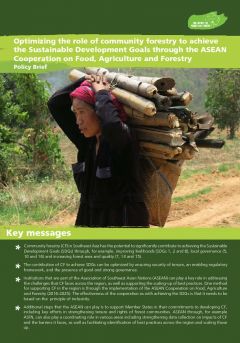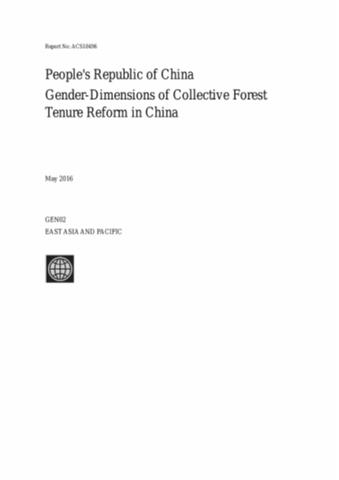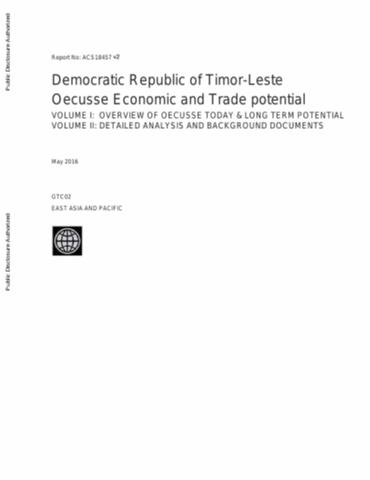Climate Change Vulnerability Assessment Report: Developing a Demonstration Site in Nepal on Community Forestry, Gender and Climate Change Adaptation
In this context, RECOFTC and USAID Adapt Asia-Pacific have developed a framework for better understanding and assessing climate change vulnerabilities in a context of multiple competing interests in a CF landscape. The pilot site for developing this approach was a women-led Community Forestry User Group (CFUG) in the Terai of Nepal; the Bishnupur community forest. The context in Bishnupur reflects challenges associated with the ecologically fragile Chure Forest, but also one of growing opportunities for economic development due to the close proximity of the Indian border.

